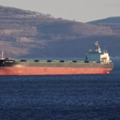Fuel rationing is coming to New York – it depends on your number plate when you can buy gasoline. This is not an efficient way to solve the lack of fuel, but no one dares to raise prices.
New York state decided to introduce gasoline rationing – on even days people with an even number plate can buy gas and on an odd day, people with an odd plate number can do so. This is a reaction to the still wide-spread supply disruption in the wake of Superstorm Sandy and additional (cold) weather disruptions. Some people noted that this is good because the fuel lines will be half as long – but no one expects them to disappear. Especially because demand would not disappear, just shifted to another day.
![NYC-Long-Island-begin-gasoline-rationing[1].jpg](https://m.blog.hu/gu/gurulohordo/image/NYC-Long-Island-begin-gasoline-rationing%5B1%5D.jpg)
Source: UPI
This episode is interesting for several reasons:
- New York’s government is selecting a patently not efficient way to deal with the local lack of gasoline. The most efficient solution would be to hike prices steeply. That would select who needs to fill up their cars most, and would also accelerate additional supply (even private supply, people trafficking fuel in their jerry cans). But it would be seen as unfair gauging – the market is not allowed to work because the companies involved think that the reputational costs of higher prices out-weigh the short-term gain (and would also risk government intervention). The companies effectively formed a cartel not to raise prices for this reason. And as a result people waste their time standing in line to get some fuel.
- Economists also have limits about where market allocation of goods is acceptable – but it is typically elsewhere than for the average person. I would not auction the seats in the lifeboats of the Titanic either. But some economists are more forgiving of “unfair” behavior because they also appreciate the flip side of better economic outcomes. In this case for example, standing fairly in line does not produce any more gasoline in the affected region. Fuel speculative fuel trading probably would. Some further reading in the blogosphere: Felix Salmon is in the ‘fairness camp’, while Mark Thoma argues that high inequality in general threatens capitalism). With eerie prescience, the Swedish Academy of Sciences awarded this year’s Economics Nobel memorial prize partially for work on similar issues.
- Motor fuel prices are low in the US, compared to Europe, and would be a prime candidate for tax increases – the US needs to reduce its huge budget deficit. Demand for the fuel is very inelastic, this episode demonstrates that people are willing to spend huge amounts to get it in terms of their time and effort. The welfare loss of taxing a good with inelastic demand is smaller than taxing something with a more elastic demand. But the episode also demonstrates how politically difficult it is increasing gasoline prices in the US. So the US probably will opt for raising taxes on something else in the end.
- Supply chains are vulnerable, which we tend to forget because most of the time they work fine. Due to climate change, and more extreme weather, it is likely that we will get similar disruptions elsewhere too. And as the electorate’s mood turns away from trusting markets, it will also be likely that rationing will be seen as a solution. Prepare for more lines, actual and virtual.
A bejegyzés trackback címe:
Kommentek:
A hozzászólások a vonatkozó jogszabályok értelmében felhasználói tartalomnak minősülnek, értük a szolgáltatás technikai üzemeltetője semmilyen felelősséget nem vállal, azokat nem ellenőrzi. Kifogás esetén forduljon a blog szerkesztőjéhez. Részletek a Felhasználási feltételekben és az adatvédelmi tájékoztatóban.




